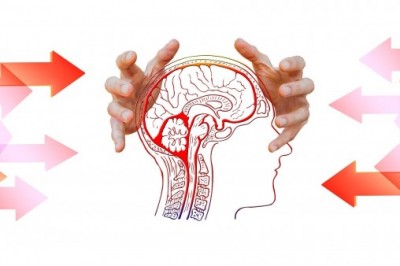What is Psychodrama
The question often arises - what is psychodrama? Aspects of the answer appear on this page. Psychodrama is a profound way to look at life in all its complexity and chaos.
Psychodrama is deep and complex
So much training and self-development is shallow and simplistic: Learn this and you will be able to do that. But human beings dont work this way, because real life is complex and unpredictable. Knowing what to do is very different from being able to do it. Psychodrama is a profound way to look at life in all its complexity and chaos. And to do this in a teachable, straightforward manner. This way you can face life with confidence and spontaneity.
Psyche relates to the spirit or mind, while drama relates to the stories acted out in life every day. By combining mind and action, psychodrama gets to the reality beneath the surface. It teaches you to feel colours or see smells, as it were. It may sound a bit airy fairy but its not. Once you get below the surface you can learn things about yourself and the roles you play that will help you make a real difference to your life and the lives of people around you.
A typical psychodrama session
How does psychodrama work in practice? In a typical session, a small group of enthusiastic people work cooperatively to do their personal psychodramas and are led by an experienced practitioner. The trainer will ask someone to get up and act out some of their deepest personal or communal concerns, such as being bullied in the workplace, or the plight of the homeless in society. Others in the group will join in, acting the extra roles in the persons drama. The session develops spontaneously as each person in turn takes the lead role in their own drama or support roles in other peoples dramas.
In this open-ended way, people find ideas and solutions they didnt know they had, and which they would never have found using conventional training or self-discovery methods. Instead of passively absorbing the answers, they actively find their own answers and help other people find theirs. The whole thing is spontaneous and fluid, not didactic and rigid.
Exploring what is important for you
As a participant in a psychodrama session you can explore the life situations that are of interest and concern to you through this type of dramatic enactment. In the course of the enactment you can express, refine and integrate new ways of being and doing. Psychodrama works for people of all ages and cultures with a wide range of life experiences. It strengthens your sense of self. It also strengthens your relationships with others and your effectiveness in groups.
Psychodrama assists individuals to:
* re-examine their current life situations, their past, their social networks and cultural context
* generate new perspectives on particular events or situations
* develop fresh responses to entrenched relationship dynamics
* prepare for future situations in which they wish to function with a greater degree of flexibility, vitality and immediacy
* bring together action, insight and here and now experience as they engage with life
* enlarge perceptions of themselves and others
* check out the personal development programs
Psychodrama assists groups to:
* examine themselves and constructively work through the dynamics of group life
* recognise patterns of interaction and interpersonal dynamics
* investigate both the formal and informal relationship networks
* recognize their collective functioning and make informed decisions about changing group norms
* check out the Core program and the calendar of training events
History of psychodrama
Psychodrama is based on the philosophy and methods conceieved of by psychiatrist Dr Jacob Moreno (1889-1974). It grew out of his experiments in Vienna in the 1920s with the theatre of spontaneity, a form of improvisational theatre. Moving to the USA in 1925 he continued to combine this with his interest in social science, exploring the possibilities of treating clients using group psychotherapy. This work has been further refined by many practitioners and training institutes around the world including in the United Kingdom, Central and Eastern Europe, USA, South America, Japan, Australia and New Zealand.
Though somewhat younger, Moreno was a contemporary of Sigmund Freud, and like Freud he developed techniques to get below the surface of ordinary life to help people heal. Yet where Freud used the couch, Moreno used the stage, and instead of sitting passively he was an active participant on this stage.
Moreno developed several techniques related to psychodrama, including sociodrama, sociometry, role theory and group psychotherapy, all of which are studied within the QTIP program.
Psychodrama is being actively used and taught throughout to the world. In places such as North and South America, Canada, the European Union, Russia, Turkey, South Korea, Vietnam, Taiwan, China, Japan.
Experiential Training
Psychodrama is taught experientially. This means that the training is highly interactive, involving you with working with yourself, your life, the life of others and the the development of the group. This method of teaching provides a form of deep learning that grounds the learning in your identity not just a series of ideas.
Prelude to training
Because the training is so profound and deep it is important for potential trainees to have the opportunity to both experience the method and to experience the training. To that end we have a wide range of experiential psychodrama programs available (with more to come) and they can be found by clicking on this line. A series of training program are also available for people who would like to try out the method and be exposed to the theory and practise.




















